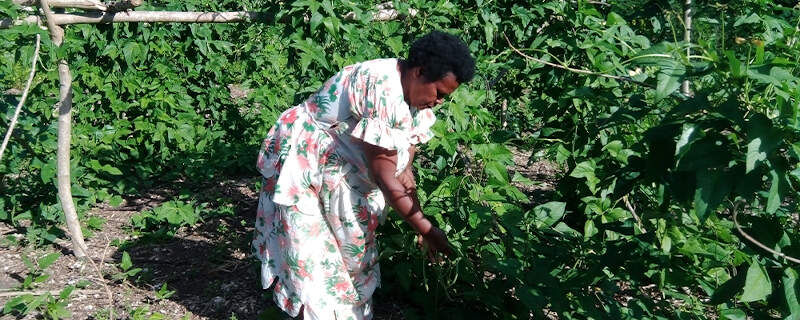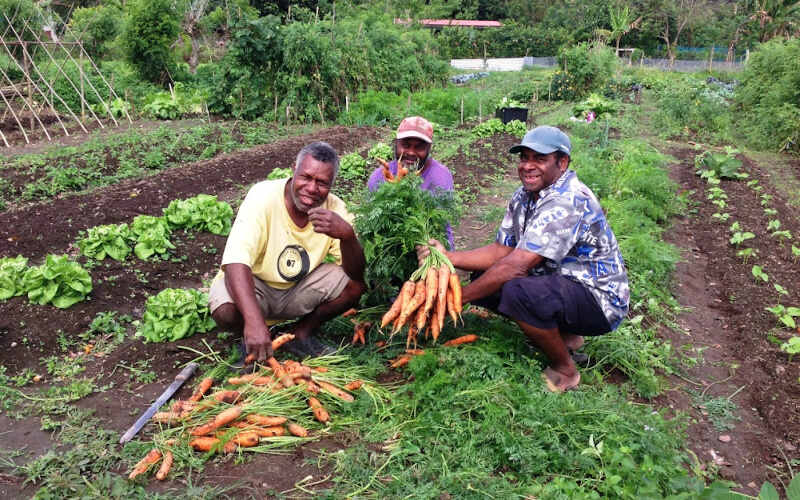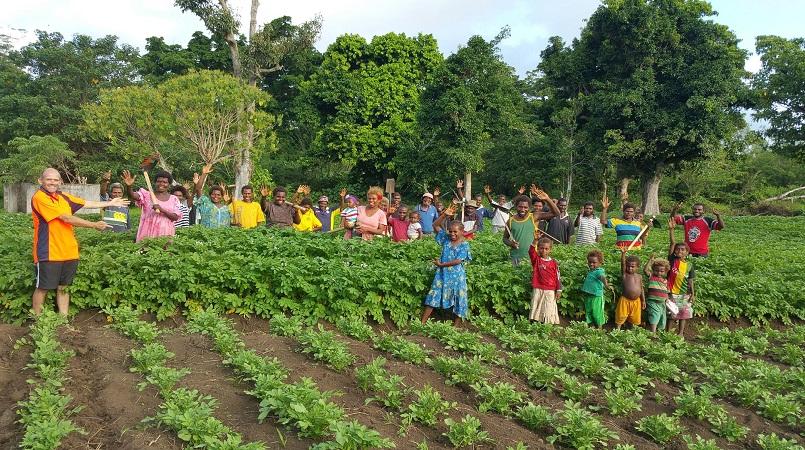
Richard Butler | Exclusive Report By VBTC News | July 29th, 2020
The Council of Ministers has approved the use of VT1 billion from the Government’s stimulus package to develop agriculture production in Vanuatu. This was confirmed by the Economic Stabilization Package team leader, Rex Willie.
He said this money will be taken from an existing Employment Stabilization Package, which has been providing some income replacement payments, due to the impacts of COVID-19 and Cyclone Harold.
“If we have problems with imports of goods or jobs losses, we [can rely] on agricultural production as a substitute,” said Mr Willie.
At the recent opening of the Agriculture Show in Port Vila the Prime Minister announced 21 percent of next year’s national budget will be put into the Ministry of Agriculture. As the Vanuatu Government redirects its focus, other businesses in Vanuatu and around the region continue to suffer.

A recent Pacific Business Monitor (PBM) survey found that uncertainty is the key challenge facing Pacific businesses. Ninety-three percent of surveyed Pacific businesses reported their main challenge as being not knowing how long the COVID-19 crisis will last.
The findings were published in the fourth Pacific Trade Invest (PTI) Pacific Business Monitor and report on a survey undertaken between 29 June and 12 July. The PBM conducts regular surveys tracking business sentiment across the Pacific with the aim of helping governments and policy-makers to respond more effectively to the impact of COVID-19.
“The uncertainty of how long COVID-19 will last … has been consistently the top challenge faced by businesses since our first survey in March 2020,” said Caleb Jarvis, Trade and Investment Commissioner, of PTI Australia. Although the Pacific remains relatively COVID-19 free it is feeling the impact of the global pandemic.
“Here in Australia, where we thought we had the pandemic under control, Melbourne has gone back into lock-down and Sydney is dealing with managing small outbreaks,” Commissioner Jarvis noted
“It puts back into question when international travel can safely resume making it extremely difficult for businesses in the Pacific to forward plan, especially industries such as tourism that are reliant on borders being open.”

Commissioner Jarvis said uncertainty is reflected in business predictions about when they will get back to business as usual. “One-quarter of businesses are unsure when conditions will return to normal and 20 per cent do not expect their revenue to return to pre-COVID-19 level until 2022 or later,” he said.
The survey also snowed that more businesses need financial support. In the latest survey, 57 percent of businesses said they need financial support, up from 49 per cent two weeks earlier. Despite the difficulties, Commissioner Jarvis said there are signs that businesses are adjusting to the new normal.
Even with 88 per cent of businesses reporting a decline in their revenue, it’s encouraging to see that the number of businesses reporting that they are reducing working hours and staff numbers has decreased, which shows a small number of businesses are beginning to find stability and a new way of operating,” he said.
The negative toll on the mental health of business owners is also easing. The number of business owners reporting a ‘very negative’ impact on their mental health has halved since the last survey and more say they are feeling ‘optimistic’ or ‘happy’.
“The private sector will be key in rebuilding Pacific economies,” Mr Jarvis said.
“As we can see through the global uncertainty COVID-19 has created, it’s going to be a very long-road ahead.” PTI will continue to monitor the impact COVID-19 is having on businesses and to inform governments, donors and stakeholders of the reality of what the Pacific’s private sector is facing.





